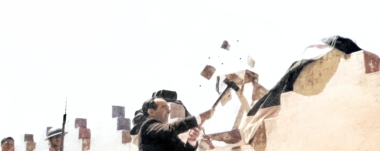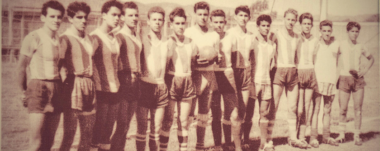40 Years After La Penca Bombing: Unanswered Questions In Costa Rica
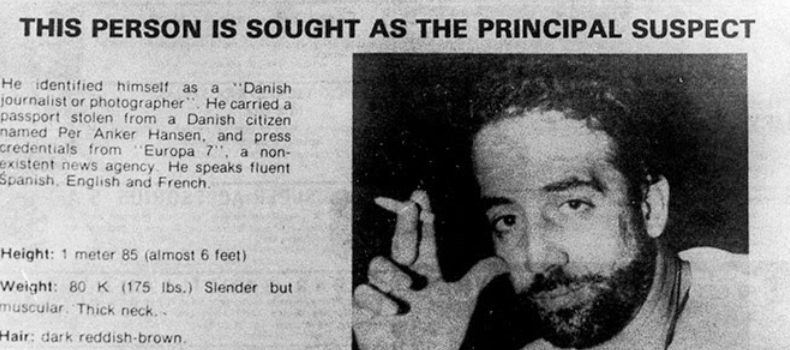
Original title: “40 years after the attack of La Penca in Nicaragua: with many unanswered questions in Costa Rica”. Text written by Professor Nicolás Boeglin, from the Faculty of Law of the University of Costa Rica.
Last Thursday, May 30, was commemorated in Costa Rica (and in Nicaragua) the 40th anniversary of La Penca bombing, in which 4 Costa Rican and foreign journalists were killed and 22 were wounded: the attack took place on May 30, 1984 during a press conference held on the banks of the San Juan River by the then commander of the ARDE (Alianza Revolucionaria Democrática), Eden Pastora, in the Nicaraguan town of La Penca (see note published for CRHoy’s 29th anniversary). Being a leader of the so-called Nicaraguan “contra”, his physical elimination, at that time, could have been the objective of both the Nicaraguan government authorities of the time, as well as those of the United States.
La Penca Bombing
In this video, entitled “La Penca: a survivor’s account”, one of the surviving Costa Rican journalists who attended Edén Pastora’s press conference where an explosive device went off, recounts what happened. The note published on June 1, 1984 by The Washington Post also merits a detailed re-reading, inasmuch as, as has repeatedly happened in the history of the United States, a rebel group that is initially supported in arms and ammunition by the United States, … is then subjected to actions to eliminate its leaders.
Although the events occurred in Nicaragua during the period of civil war in the early 1980s, the surviving Costa Rican victims and the families of the deceased have requested that an investigation be ordered into what happened, without receiving any response to their various requests.
The union of information professionals has also supported their claims without much success. This situation has led the victims to turn to the Inter-American system for the protection of human rights, which, 40 years after the events, has still not managed to bring the case before the Inter-American Court of Human Rights. How so? As you can read.
The United States And La Penca Bombing: Between Shadows And Obscurity
In 1990, Costa Rica formally requested the United States to extradite a U.S. national (see note from the New York Times), but the U.S. failed to extradite him. It reads in this document from the U.S. Department of Justice entitled “G. DEA’s Investigation of Information It Received About Contras or Contra Sympathizers” that Costa Rica renewed such request in 1993 against this person for La Penca bombing:
In March 1993, Costa Rica submitted a renewed request for Hull’s extradition which contained documents indicating that the Superior court in Costa Rica had dismissed the drug trafficking charge against Hull for lack of evidence and that his extradition was no longer sought for that offense. This left the “Hostile Acts” and murder charges against Hull. However, on reviewing the documentation supporting the murder charge, based on Hull’s alleged involvement in the La Penca bombing, the OIA found no evidence of Hull’s involvement in this crime, indeed no evidence that he even knew about the bombing before it occurred.
In the following lines, the aforementioned document states that, according to cables from U.S. diplomats accredited in Costa Rica:
A “comment” by the cable’s author interprets Calderon’s statement as meaning that “On Hull, Calderon is putting us on notice that there’s no way he can turn a request off but is clearly hoping that Hull will not be extradited.
La Penca Bombing
It is worth noting the writing of one of the authors of a book that brought her and her husband a defamation action in court by the aforementioned American citizen, whom the United States later refused to extradite to Costa Rica (see article from 1991 of the Washington Post entitled ‘The man Washington doesn’t want to extradite’), when he points out in this article published in the Tico Times in 2013, that:
And, during Arias’ tenure, Costa Rica’s Legislative Assembly carried out investigations that implicated North, Hull, the U.S. ambassador and CIA station chief, and others in Contra-related drug trafficking and other “hostile acts” against Costa Rica. Judicial authorities reopened the stalled La Penca investigation, ultimately bringing murder charges against both Hull and CIA operative Felipe Vidal. Both fled the country.
However, unanswered questions about the La Penca bombing have continued to haunt us.
As indicated, the author wrote a book that was published and immediately the subject of a defamation lawsuit that was ultimately unsuccessful. The full text is available at this link.
Timeline Of A Long Legal Battle
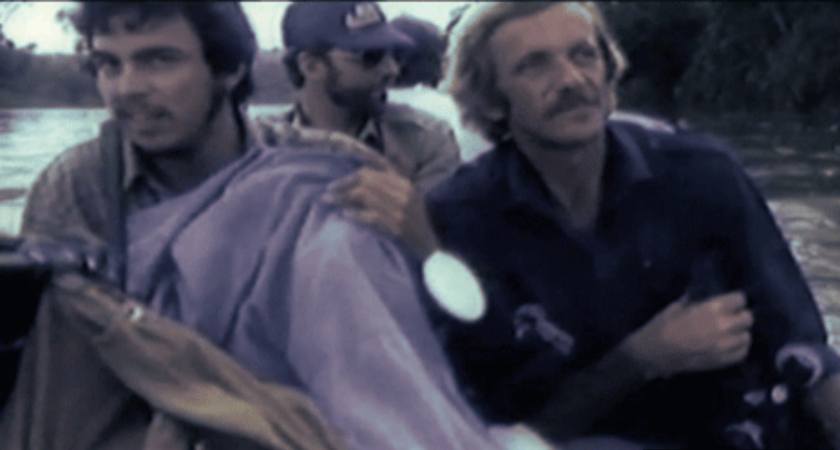
During the month of September 2005, Costa Rican survivors and relatives of the victims filed a complaint against Costa Rica before the Inter-American Commission on Human Rights for not properly investigating this attack (see note from La Nación): they could have done it 20 years earlier (1985), but something happened so that they … they didn’t.
Within this link of Primera Plana (Colegio de Periodistas de Costa Rica), you can review the details of the action filed in 2010.
In March 2012, the lawsuit was expanded to include the Nicaraguan state investigative bodies.
In June 2013, the Commission was asked to include some testimony found in recent documentaries produced on this case, in particular interviews by a Swedish filmmaker with Nicaraguan officials (see documentary “Good Bye Nicaragua“).
It should be noted that, at the end of 2013, the Costa Rican Prosecutor’s Office closed one of the lines of investigation, upon confirmation in Buenos Aires of the death of one of the nationals of Argentina considered as one of the possible leads and main suspect of placing the bomb that exploded that May 30, 1984 (see article of La Nación of 3/12/2013). It reads (see note from Teletica Canal 7) that:
Jorge Chavarría, fiscalía general de la República, “Se había reactivado la orden de captura en el 2008 a la Organización Internacional de Policía Criminal (Interpol), porque no sabía si había fallecido o no. Ahora ya lo tenemos claro y con eso cerramos esta línea de investigación, vamos a ordenar la cancelación del asiento de la captura internacional que se había dado a Roberto Vital“.
La Penca Bombing
An article in the Prensa Libre (Costa Rica) of the same day read that:
Con base en restos óseos que fueron recolectados luego del asalto al cuartel la Tablada en Argentina, en 1989, que estaban conservados por las autoridades de ese país, se realizaron análisis de ADN. De acuerdo con las conclusiones a las que llegan los médicos forenses de la Corte Suprema de la Nación de Argentina, se establece con un 99,99% de certeza que un grupo de los restos óseos pertenecen a Roberto Vital Gaguine”, afirmó el fiscal general Chavarría.
While in 2013 the Costa Rican authorities announced the closure of a line of investigation, it turns out that already in an article of August 1, 1993 in The Independent (UK) referred to the death of this suspect in 1989 when it is specified that:
Gauguine’s family knew nothing of his involvement with La Penca, but others have furnished details of his life: he came from a middle-class family and his ERP nom de guerre was Martin el Inglés. He arrived in Britain in 1978, where he later applied for asylum. By 1980 his whereabouts were again unknown. He will never be brought to justice: in 1989, he died, with 18 others, in a guerrilla attack on an army barracks on the outskirts of Buenos Aires.
The 10 years that separate the article in The Independent and the statements of the prosecutor in charge of the investigation in Costa Rica raise very valid questions.
In 2017, it was the School of Collective Communication Sciences (ECCC) of the University of Costa Rica that raised its voice in the face of the lack of progress in relation to the complaint filed in 2005 before the Inter-American Commission (see communiqué).
In 2018, it was indicated in the Costa Rican press that the Inter-American Commission on Human Rights “accepted” the complaint, but without any official document of the complaint being made public (see note from the Semanario Universidad).
40 Years Of La Penca: Victims, Press and Costa Rican Citizenship Awaiting Justice
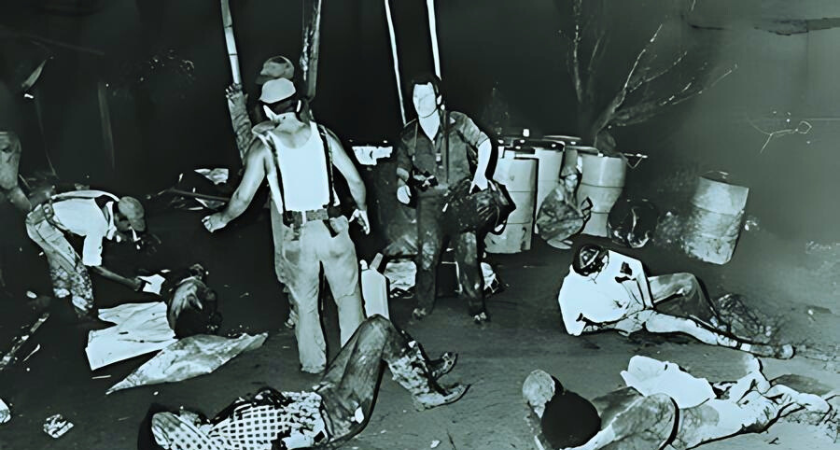
For the 30th anniversary of La Penca attack, on May 29, 2014, some deputies of the Legislative Assembly declared before cameras to support the efforts of the Costa Rican Journalists Association before the Inter-American Commission on Human Rights (see video).
On the same May 30, 2014, widely heard morning radio broadcasts were dedicated to the topic such as Hablando Claro by Vilma Ibarra and Boris Ramirez and Nuestra Voz by Amelia Rueda, with extensive multimedia material made available to the Costa Rican public at that time.
As part of the 30th anniversary commemorations, the University of Costa Rica’s (UCR) Channel 15 presented the documentary: “Goodbye Nicaragua” (Note 1) by Swedish director Peter Torbiörnsson. The film, which includes interviews of the filmmaker in Bolivia, Costa Rica, Cuba, France and Nicaragua, caused some impact and reactions in Nicaragua when it was presented in 2011 (see note from the Semanario Universidad de Costa Rica).
In a note published in a Costa Rican legal portal, we gathered this and other information a few days after the 30th anniversary of La Penca attack (Note 2).
Also on Friday, May 30, 2014, the documentary “La Penca: Onda Expansiva”, (see link) a joint production of the College of Journalists (COLPER) and Channel 15 of the UCR, was broadcast, which includes interviews with persons from the Costa Rican judicial system in charge of the investigation carried out (documentary produced in 2004 to commemorate the 20th anniversary).
La Penca Bombing
In these interviews, it is indicated that the official steps taken with the United States to extradite two individuals were not concluded due to errors by the Costa Rican Ministry of Foreign Affairs in their processing (see video, at min 32:27). The same interview also indicates that documents sent from the United States to the Costa Rican judicial authorities arrived … crossed out, making it impossible to read names, places and dates.
Note however the existence – online – of this publication posted by the US intelligence services (see link), entitled “La Penca, Pastora, the press and the CIA” in which a multitude of collected data offer some clues without being able to corroborate them. Being an intelligence agency whose authorities had an interest, in 1984, in physically eliminating Edén Pastora, everything that appears on its site deserves caution. It should be noted that the final part of the document reads: “Approved for release 2010/09/15”. This is evidence that for many years since 1984, this document was kept without being uploaded by this entity, for unknown reasons and it would be of great interest to know. What happened in 2010 that did not happen before, making it impossible for the U.S. intelligence services to put this publication online?
La Penca Bombing
A article in the 1993 New York Times reads that:
A Costa Rican prosecutor, Jorge Chaverria, said that he had no plans to withdraw the charges against the two men. His investigation in the late 1980’s found no evidence to point to the Sandinistas, and he said he was not convinced that the Sandinistas alone were behind the bombing.
For his part, the Swedish filmmaker, with his documentary “Goodbye Nicaragua” presented in 2011, suggests definitively ruling out the possibility that it was an action commanded by the U.S. intelligence services and clearly points out the direct responsibility of members of the Nicaraguan intelligence apparatus in this painful episode that took place in 1984, and the executing arm in charge of carrying it out. For the victims and their families, this is a documentary that sheds some light on the possible masterminds of this attack.
An article published in 2014 on the La Penca attack refers to other deaths of journalists that occurred in Costa Rica after 1984, and is titled “The country of impunities 30 years after La Penca: Costa Rica”.
In Conclusion
As of May 30, 2024, investigations by entities other than the Costa Rican and Nicaraguan investigative bodies have not been able to identify the masterminds of this attack: conjectures of all kinds have not been validated by a court record.
Given the maneuvers of all kinds to slow down or complicate the investigations carried out by the Costa Rican Judiciary, and the processing errors within the same Costa Rican state apparatus, external investigations by journalists have not allowed to reach conclusions validated by the facts.
Since May 30, 2104, as well as since May 30, 2014, very little progress has been made. This May 31, 2024, the Rapporteur on Freedom of the Press in the Inter-American system promised to reactivate the case before the Inter-American Commission on Human Rights, making it evident that this body has not been most effective in processing this complaint that was initially presented to it in 2005 (see nota of Semanario Universidad): except for our error, there is no record of a complaint filed before the Inter-American human rights system that, in 19 years, has not given rise to a report on its admissibility by the Commission.
La Penca Bombing
With regard to the Inter-American Commission on Human Rights, it seems, for reasons difficult to explain, that its members do not know to which State apparatuses to request information on this case: since 2005, except for our mistake, no public decision has been made regarding this specific case. If the complaint was initially made against Costa Rica, and then extended to Nicaragua, to date there is no known report from the inter-American body on the steps taken on its part to both States. Much less a report on the admissibility of the complaint (if it exists, for some reason it is not available on the website of this body of the inter-American human rights system).
In the show Hablando Claro by Vilma Ibarra and Boris Ramirez on May 31, a very extensive interview with one of the survivors of La Penca bombing could be heard (see link to this radio broadcast).
Given the suffering it has caused to the victims and their relatives, these 40 years that have passed could well be the occasion for some consciences to release some secrets that they keep closely guarded, and for some classified documents filed in some embassies in Central America to be finally declassified: this is a request that we had the opportunity to express also on the occasion of the date on which the 40th anniversary of the death of the young student Viviana Gallardo was commemorated, in July 2021 (Note 3).
La Penca Bombing
If these documents are no longer in these embassies, some capitals may be asked to order their declassification, given the long period of time that has elapsed since that fateful May 30, 1984: these are diplomatic steps that any State may take with another State in which it suspects that there is information that may shed light on a matter of public interest. In this sense, clarifying the shadows and doubts that persist in Costa Rica about La Penca bombing is a matter of public interest.
Unless the impunity with which some, both in Costa Rica and abroad, seem to maintain this tragic episode, ends up imposing itself with the passing of time.
Text shared by Nicolás Boeglin, Professor of Public International Law, School of Law, University of Costa Rica (UCR). Contact: [email protected]
Notes
Note 1: The trailer for the documentary “Goodbye Nicaragua” is available here. The last part of the documentary (part 3), subtitled in Spanish, is also available on Youtube and available here.
Note 2: See BOEGLIN N., “El Atentado de la Penca 30 años después: conmemoración y preguntas sin responder”, DerechoalDía, June 5, 2014 issue. Text available here.
Note 3: See BOEGLIN N, “On the 40th anniversary of the murder of Viviana Gallardo in Costa Rica: brief notes”, July 1, 2021. Text available here.
Navigate articles



